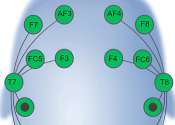Researchers find amygdala not always necessary for fear
(Medical Xpress)—Researchers at the University of Iowa have found that three volunteer women with defective amygdalas were able to experience internal fear. In their paper published in the journal Nature Neuroscience, the ...









